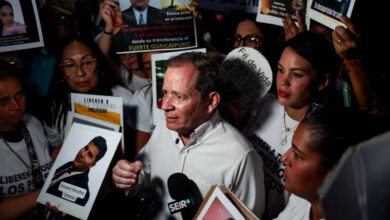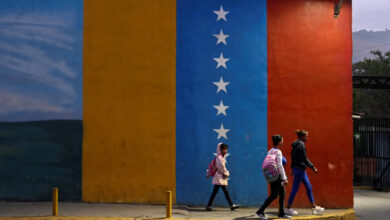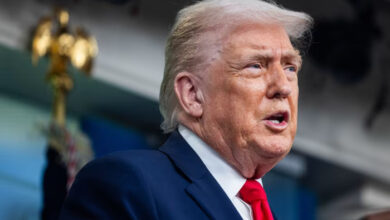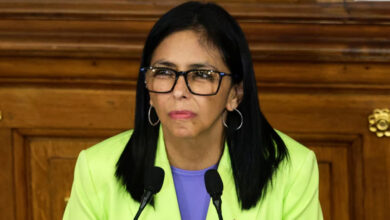
CARACAS — After Hugo Chavez spent two months out of the public eye for cancer surgery in Cuba, the Venezuelan government hailed his homecoming on Monday and said the president had achieved another milestone — 4 million followers on Twitter.
The 58-year-old flew back from Havana before dawn and was taken to a military hospital. No new details were given on his health, and there were no images of his arrival. Officials say his condition remains delicate.
The normally loquacious socialist leader, who is struggling to speak as he breathes through a tracheal tube, took to Twitter with a passion back in April 2010, tweeting regularly and encouraging other leftist Latin American leaders to do likewise.
His @chavezcandanga account quickly drew a big mixed following of fans, critics and others just curious to see how his famously long speeches and fiery anti-US invective would work within the social media network's 140-character limit.
But as he fought the cancer and underwent weeks of gruelling chemotherapy and radiation therapy, he began to tweet less and less frequently, before stopping altogether on 1 November.
Early on Monday morning, he made his reappearance.
"It was 4:30, 5 am He got to his room and surprised everyone: rat-tat-tat, he sent three or four messages, and at that moment fireworks began to go off around the country," Vice President Nicolas Maduro said in a televised cabinet meeting.
During the day, Maduro added, the president's number of followers had shot up to well over four million.
"It's incredible, in just a few hours … he's the second most-followed president in the world (after Barack Obama), and the first if we make the comparison by per capita," he said.
Obama has more than 27 million Twitter followers and is No. 5 most followed globally. Chavez is Twitter's No. 190 globally.
4 millionth follower
Maduro said Chavez's four millionth follower was a 20-year-old single Venezuelan woman named Alemar Jimenez from the gritty San Juan neighbourhood in downtown Caracas, near the military hospital where the president arrived earlier in the day.
"She's one of the golden generation of youth who support the fatherland and have been waiting with growing love for commander Hugo Chavez," Maduro said, before presenting a dazzled-looking Jimenez to the cameras and giving her a bunch of flowers.
"We were really emotional" she said, recounting how she was with her mother when they heard Chavez had returned. "I sent him a message on Twitter saying he must get better."
There are still big questions over the president's health. He could have come back to govern from behind the scenes, or he may be hoping to ease political tensions and pave the way for a transition to Maduro, his preferred successor.
Chavez has often ordered followers to fight back against opposition critics of his self-styled revolution by using social media, leading from the front himself on Twitter and referring to the Internet as a "battle trench."
As his ranks of followers grew, Chavez said he hired 200 assistants to help him respond to messages — which he said were a great way to receive first-hand the requests, demands, complaints and denunciations of citizens in the thousands.
During his re-election campaign last year, the government launched an SMS text message service that forwards his tweets to cellphones that lack Internet service, broadening their reach to the poorest corners of the South American country.
"He's a communication revolution!" Maduro said, later unbuttoning his shirt on TV to show he was wearing a T-shirt bearing Chavez's eyes emblazoned across his chest.
For the tens of thousands who signed up on Monday to follow Chavez on Twitter, it is unclear how much will be posted there in the weeks and months ahead. Venezuela's 29 million people are mostly wondering something similar.




